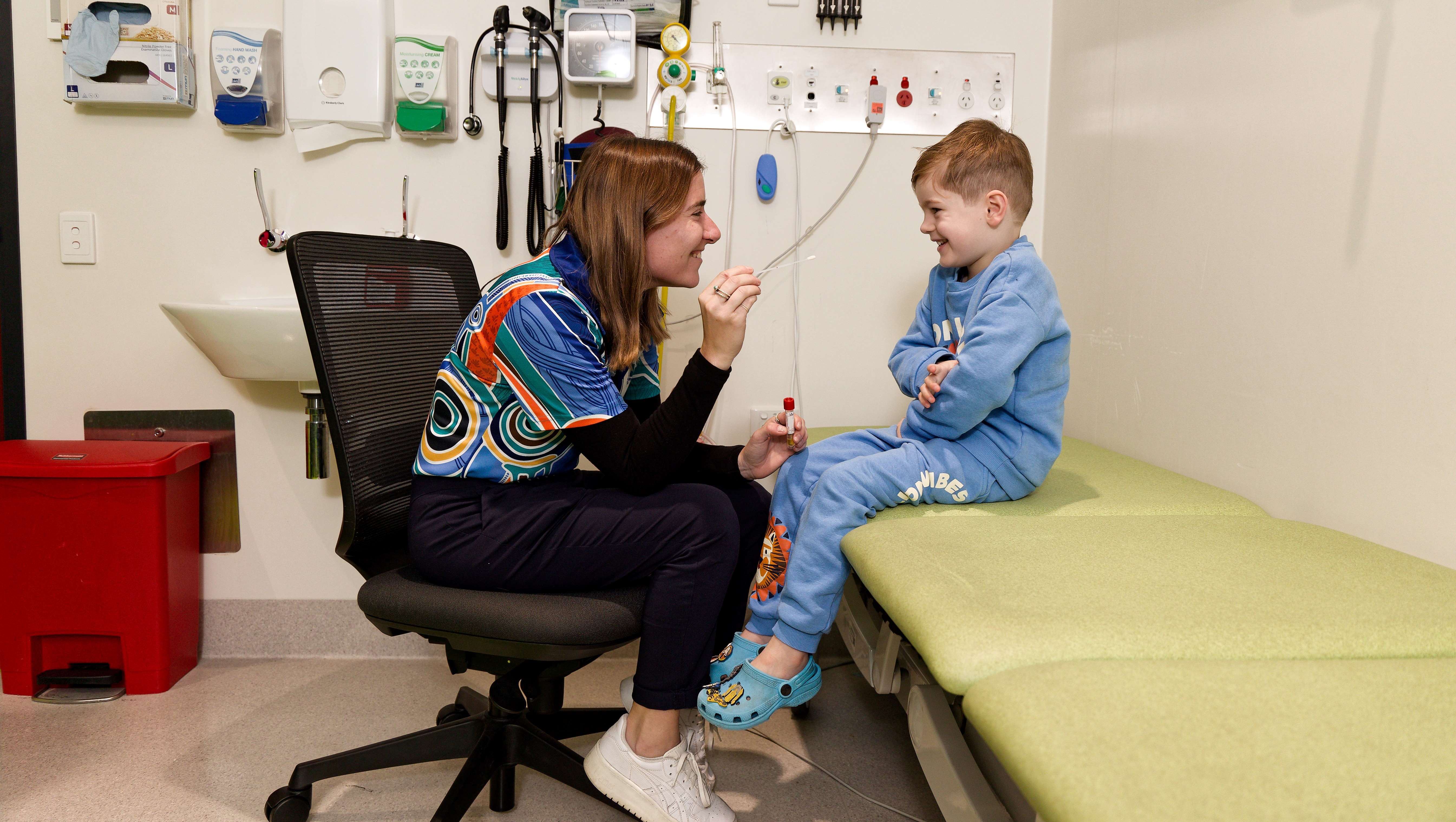Search
Find information for researchers wanting to use Young Minds Matter data in their research, including resources and database access.
Watch videos from the Young Minds Matter team
If you have any concerns, you can visit your GP or contact Lifeline, beyondblue, Kids' Helpline, headspace, Reach Out or Relationships Australia.
At the Wesfarmers Centre, we undertake research in five key areas of infections and immunisation to assist in children's health.

Researchers from The Kids Research Institute Australia would like to understand more about respiratory syncytial virus (RSV) and how we can provide the best protection for kids.
Review the hospital-based research that the Wesfamers Centre of Vaccines & Infectious Diseases conducts.
We are evaluating new vaccines for a range of diseases including influenza, pneumococcal, meningococcal and common infections such as otitis media (glue ear).
Vaccine Trials Group with Sir Charles Gairdner Hospital is conducting a trial of a vaccine against Clostridium difficile infection (CDI) in at-risk individuals.
The study aims to determine whether an RSV vaccine given to pregnant women during the third trimester can protect newborn babies from RSV infections.

Through co-design with community members, we hope to better understand the strengths and effectiveness of community-driven health promotion resources.
